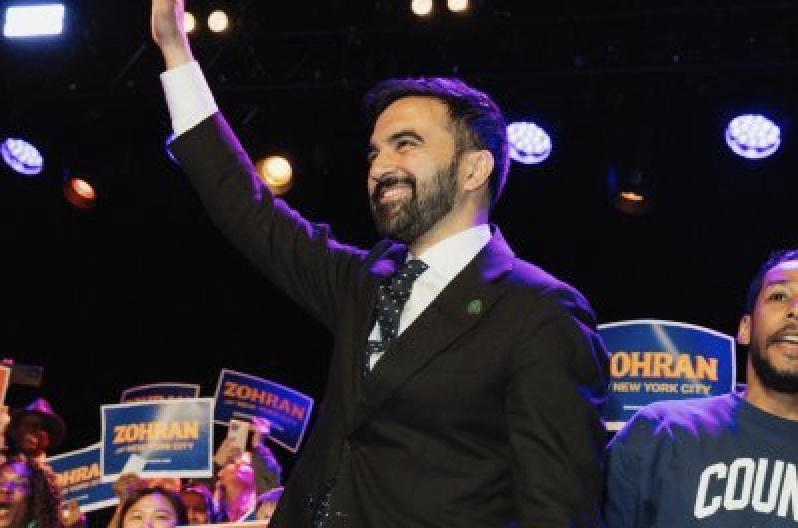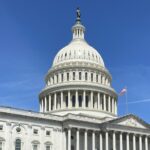It is not as if New York City is on fire with the election of a 34-year-old South Asian Muslim as the Mayor of the city, or that communists have started to land on the banks of the Potomac because of a red mob wave sweeping across America.
In more ways than one, the off-year elections of November 4, 2025, have energized the spin maestros of both Republicans and Democrats, and perhaps triggered some deep soul-searching in both parties on what to expect in November 2026. The party is hardly over in the Zohran Mamdani camp, and with talk of his win being the best thing that happened after a loaf of bread, Democrats are slowly waking up and starting to smell the coffee.
At one end of the spectrum is the President of the United States, Donald Trump, who is convinced that the Democratic wins on Tuesday happened only because he was not on the ballot and because of the government shutdown. “TRUMP WASN’T ON THE BALLOT,” and the federal government shutdown “WERE THE TWO REASONS THAT REPUBLICANS LOST ELECTIONS TONIGHT,” the President said on his social media site.
The National Republican Campaign Committee went further. “The Democrat Party has surrendered to radical socialist Zohran Mamdani and the far-left mob who are now running the show,” spokesman Mike Marinella said in a statement. “Every House Democrat is foolishly complicit in their party’s collapse, and voters will make them pay in 2026.”

But Democrats are perhaps waiting for the euphoria to subside before jumping to conclusions and final assessments. “Much ink will be spilled over Mamdani, and he will become a face of the party, but the idea that he will define what it means to be a Democrat, I think, is absurd,” said Matt Bennett, the executive vice president for public affairs of the Democratic group, Third Way.
Others reflected on a recent CBS News poll that showed only 22 percent of Democrats nationally think the party should move toward socialist positions. A full 60 percent believed that the party’s economic positions should be a mixture of capitalist and socialist ideas. But the bottom line is not difficult to see: the emergence of a debate within the Democrats on ideology, and, with this, leadership, the price for the lack of both paid in November 2024.
The win for the Democrats was indeed spectacular. The party took the governor’s mansions in Virginia and New Jersey; three Democratic justices on the Pennsylvania Supreme Court had their terms extended by ten years; and California passed Proposition 50 on redistricting, which would see the Grand Old Party lose five seats in the House of Representatives. The political charade started in Texas at the egging of the White House, and soon some red states fell in line.
Now, with California showing the way and the possibility of other blue states following, there is sudden concern in the Republican camp that this strategy could backfire. Making it more difficult for Republicans is that several in their ranks are opting out of contesting in November 2026, 20 according to one count, as opposed to 11 among the Democrats.
Technically, President Trump was not on the ticket, but he was in every way that can be imagined. He was actively involved in the New York race by backing Andrew Cuomo, even at the expense of a Republican on the ticket. “A bad Democrat is better than a Communist,” was his refrain. In New Jersey, the President lent his weight to GOP candidate Jack Ciattarelli and participated in tele-rallies. And the government shutdown must have meant a lot to those in Virginia, where a huge chunk of federal bureaucrats live.
Overall, there is a feeling that the policies of the last ten months have made a difference, especially to those looking beyond grocery and gas bills to issues of immigration and voting rights. The impression is that Hispanics have moved away from the Republicans, which is a critical message for the GOP as it looks toward 2026 and 2028.
The first thing to watch will be the kind of churning that is going to take place within the Democratic Party. Indications are that the hardline elements are already warning their leaders in the House and Senate not to cave into demands from within and outside to reopen the government without achieving larger objectives. As it is, there is pressure on the old guard to gracefully step aside and make way for the voices of newer generations.
The party has to find a middle ground that accommodates conservatives, liberals, socialists, progressives, and independents. Both in New York and nationally, Democrats have to find an acceptable middle ground, which is not going to be easy to come by. And there is the realization that what works in New York may not work in the rest of the country.
The Mayor-elect in New York will have to deliver on the high cost of living by slashing rents, lowering grocery prices, or offering free transportation. Talk of raising taxes on the rich and corporations comes with political costs, even for Democrats. By the same token, Republicans hoping to wave and pin the communist flag on every Democrat may be inviting a huge setback next year. And November 2026 will set the stage for the presidential election of 2028.
Disclaimer: The opinions and views expressed in this article/column are those of the author(s) and do not necessarily reflect the views or positions of South Asian Herald.






